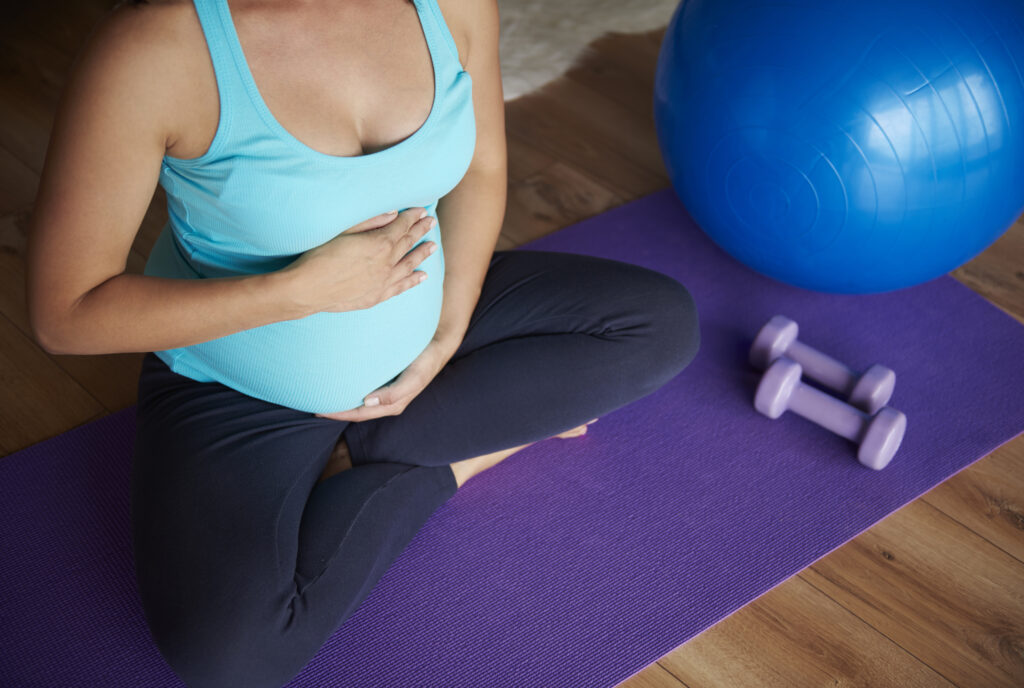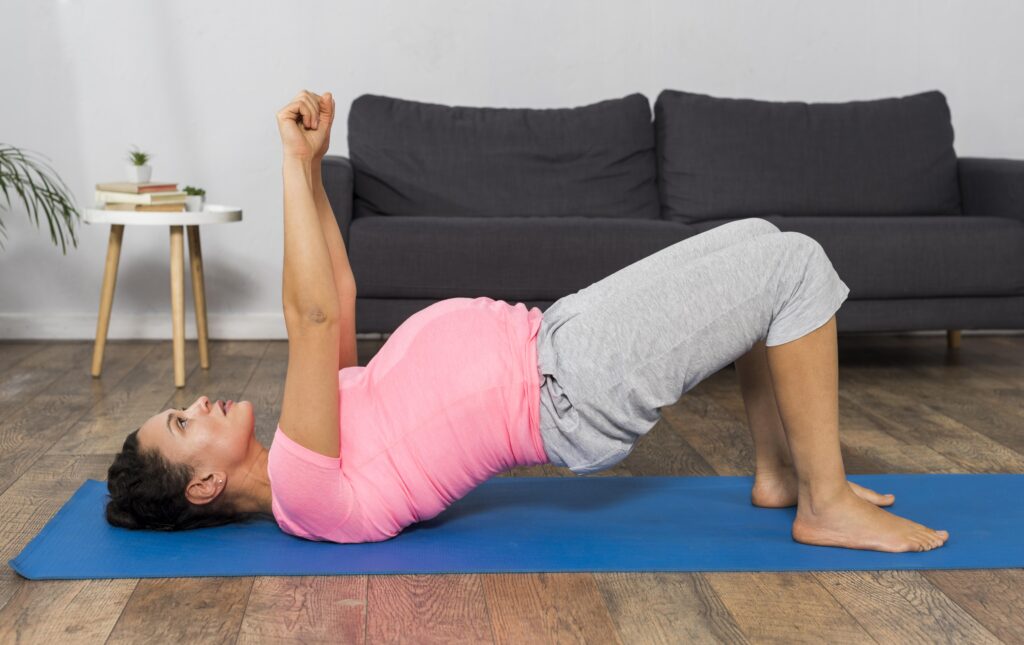Smoking

Smoking during pregnancy can endanger the healthy development, birth and wellbeing of the baby. Studies have shown that smoking during pregnancy can lead to miscarriage, poor growth of the baby, bleeding in pregnancy and stillbirth. Smoking has also been linked to Sudden Infant Death Syndrome (“cot death”). The more you smoke, the greater the risk of problems with the pregnancy and with your baby. However, if a woman stops smoking, these risks are greatly reduced. Ask your midwife or doctor for more information.
Alcohol

Alcohol passes through your bloodstream and into your baby. It is known that alcohol can harm a growing baby, but it is not known what level of drinking causes this harm. Even small amounts of alcohol taken regularly may cause problems. Effects on baby can include poor growth, learning difficulties or poor co-ordination. In Australia, the National Health and Medical Research Council advises women not to drink during pregnancy.
Caffeine

Caffeine is an addictive drug, and is contained in tea, coffee, coke and cola, cocoa and hot chocolate. More than 2 cups of instant coffee or 1 cappuccino should be the upper limit of your caffeine intake. More than this, or 4-6 cups of tea / hot chocolate per day could be harmful and addictive for you and your baby. It is best to try and replace these foods and drinks with caffeine-free alternatives where possible.

Exercise

It is very important to maintain fitness and flexibility which increases your energy and sense of wellbeing, and often helps you to cope better during and after childbirth. If you were active before pregnancy, it is usually fine to continue the same activity – check with your midwife or doctor regarding the particular sport or activity.
If you have not exercised regularly before pregnancy, do not launch into a new fitness regime too quickly. 12 weeks (3 months) is a good time to start a gentle exercise program suitable for pregnancy. Exercise is safe as long as you take things easy, stop when you feel tired and do not overheat yourself. Walking, swimming and yoga are very good for pregnant women.
Pelvic Exercises

Pelvic Floor exercises
Your pelvic floor contains the muscles forming a base supporting your bladder, uterus and bowel. Like other muscles, these can weaken and sag during pregnancy. This can cause accidental loss of urine (incontinence), the need to pass urine more frequently, prolapse or sagging of the uterus, bladder and bowel, and sexual dysfunction.
To exercise the pelvic floor
Pull up the muscles inside your vagina as though you are stopping yourself passing urine or wind, without tensing your thighs or buttocks. Hold this for a few seconds and relax. Repeat this exercise regularly and frequently every day.
Air Travel During Pregnancy

Most airlines allow women to travel until the 34th week of pregnancy, provided the pregnancy has been uncomplicated and the woman has no other medical risk factors. Short flights (less than 2 hours) are preferred to longer flights. Before booking your ticket, check the airline’s policy.
In the event of premature labour, adequate facilities for birth or a medical emergency will typically not be available on the aircraft.
Deep vein thrombosis (DVT) is a medical condition in which one or more blood clots form in the large deep veins of the legs. In some cases, DVT can be life threatening. Sitting in one position for a long time, dehydration, low humidity in the aircraft and excess alcohol consumption are some of the risk factors for DVT. It is often called “travellers’ thrombosis” or “economy class syndrome”.
A pregnant woman has an increased risk of DVT due to the pregnancy itself, and flying adds to that risk. Pregnancy-associated risks last for 6 weeks after the baby is born.
The risk of DVT may be reduced by:
- requesting an aisle seat so you can carefully walk around and move your legs, feet and toes to improve blood circulation;
- drinking plenty of water and little or no alcohol or beverages containing caffeine;
- wearing well-fitted compression stockings
Vaccinations
As many vaccines are available, pregnant women should seek advice from their general practitioner about which vaccines are recommended for the region they intend to visit. Avoid vaccines in the first 3 months of pregnancy, and avoid “live” vaccines (which carry a small risk of transmitting the disease to the foetus) throughout the pregnancy. Live vaccines include measles, rubella, BCG (tuberculosis) and polio (oral route).
Some of the safe vaccines after the first 3 months are Hepatitis A, Hepatitis B, meningococcal meningitis, rabies and thphoid fever (thphium Vi). Vaccines should be used only when the benefits outweigh the risks that vaccines may cause to the mother and the foetus.
Working
Unless your job involves heavy physical work or occupational hazards harmful to the baby, there is no reason why you cannot continue to work for as long as you feel comfortable.
It is important to have your allocated rest breaks, take care of your posture, and maintain a healthy diet with your meals and snacks at work.
- Avoid lifting heavy objects and lift correctly (i.e. with knees bent and back straight).
- Wear support stockings. This may help to relieve tired legs if you have to stand for long periods.
Sexuality
If you are well and your pregnancy is progressing normally, there is no reason why you cannot continue with your usual sexual activity. For some couples, it is not unusual to lose interest in sex at some stage during the pregnancy. At other times, enjoyment of sex may be unchanged or even increased. It is important to feel comfortable about the decisions you make together about love-making.
Feeling baby move
Most women become aware of baby’s movements as “flutters” in the lower abdomen at about 18-20 weeks. The baby will move more frequently throughout the day, but is often more noticeable when you are resting. Once you start to feel baby move, you should feel more than 10 movements per day – this is a sign of baby’s wellbeing.
Your baby may get hiccups; this is quite normal. Toward the end of pregnancy, the baby’s movements may seem less strong as the baby has less room to move inside the uterus. However the baby should still move as many separate times each day as before.
Baby’s movements do not slow down or stop just before labour starts. Do not hesitate to contact the hospital if you notice any significant decrease or change in your baby’s movements. It is recommended that if this happens, you should go straight to the hospital and have the baby’s wellbeing checked thoroughly.
Breast Care during Pregnancy
During pregnancy, wash breasts daily as normal in the bath or shower. The dark area surrounding the nipple is called the areola. This produces its own oils/lubricants to prevent the areola from drying. There is no need to apply extra lotion or creams on your nipples or areolas.
As early as 16 weeks you may notice a yellowish fluid leaking from your nipples. This is colostrum and it is the beginning of your supply of milk for the baby. Some women may not notice it until the baby is born; either is normal. Colostrum is thick and provides all the nourishment your baby needs in the first few days of life, as well as providing a high level of protection against disease.
